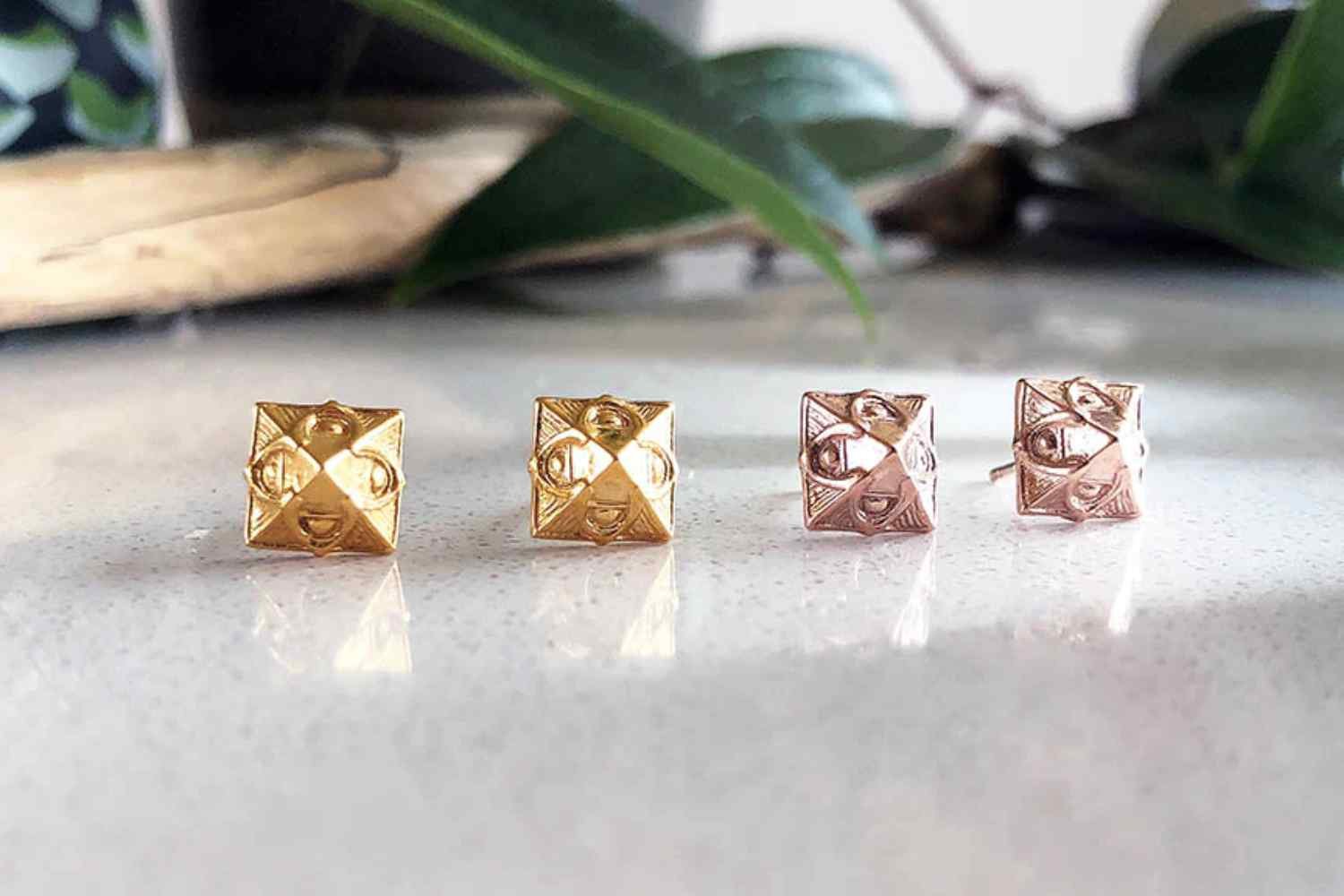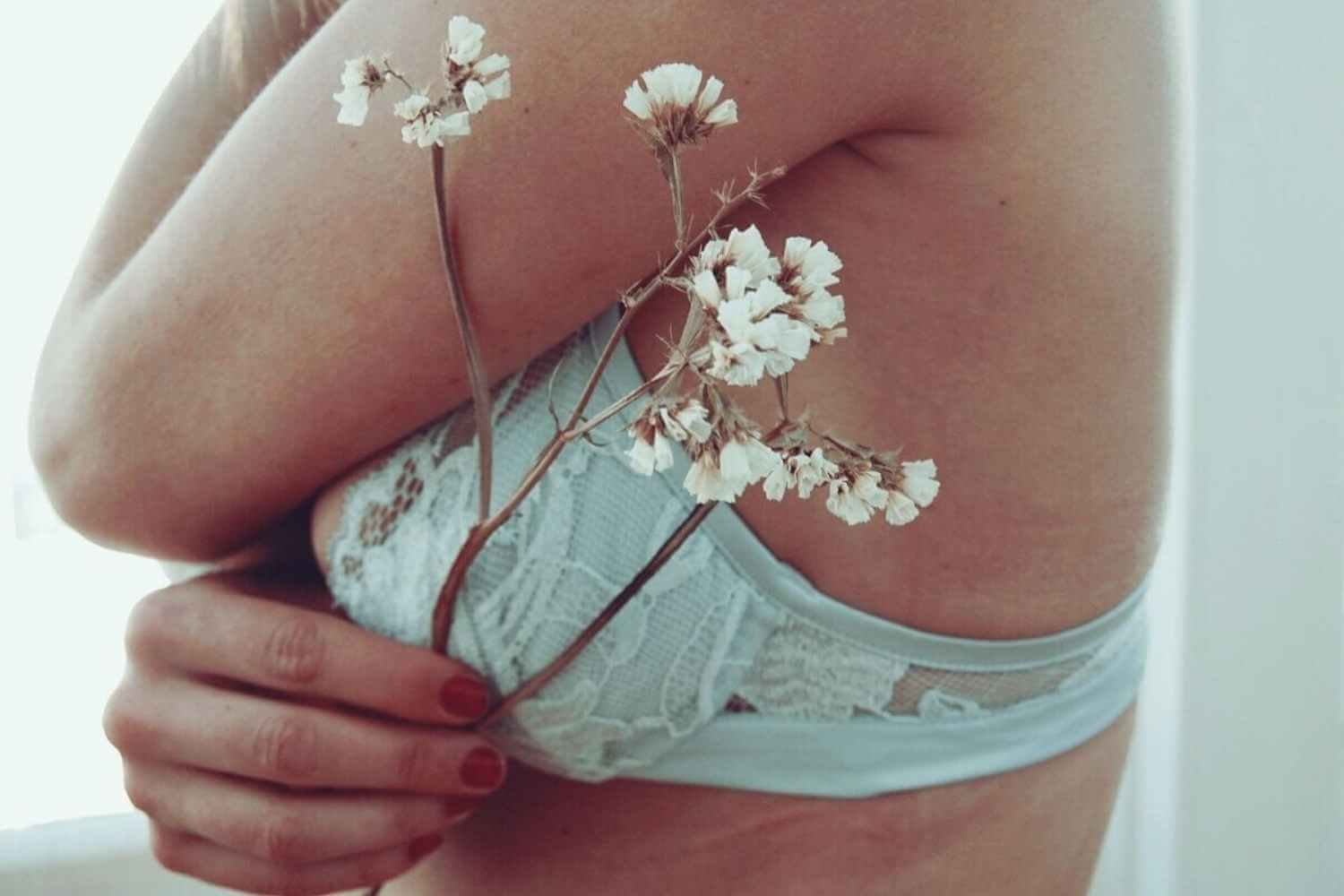How To Have An Ethical Valentine's Day
Want to make your Valentine’s day more ethical? Keep reading eco-friendly gift ideas for your loved ones in the UK, USA, and Australia
This article contains affiliate links to sustainable retailers
From carbon-heavy roses to plastic-filled teddy bears, Valentine’s Day gifts aren’t kind to the planet.
But did you know the holiday is harmful to people, too?
We live in a society that is so disconnected from our purchases that the people that make the products are often forgotten.
The increasing level of consumerism during holidays like Valentine’s Day and Mother’s Day has a devastating impact on millions of people around the world, most of which are people of colour.
Thankfully, it’s possible to have an ethical Valentine’s day.
By the time you’ve read this post, you’ll have an in-depth understanding of the ethical and environmental impact of roses, chocolate, jewellery and all the other popular romantic items. You will also learn how to buy them in a sustainable and eco-friendly way so you can ensure you have an ethical Valentine’s Day this year.
COMING UP
Valentine’s Day consumption statistics
Who is profiting from Valentine’s Day?
How to have an eco-friendly and ethical Valentine’s day
1. Ethical Flowers
2. Eco-Friendly Cards
3. Sustainable Chocolate
4. Ethical Jewellery
5. Lingerie
Valentine’s day consumption statistics
Despite the fact most couples think February 14th should be about love, 62% of people surveyed said they felt obligated to spend money on Valentine’s Day gifts.
The statistics I’m about to share are an excellent example of how good people are at spending money when they don’t want to. It’s pretty ridiculous when you think about it.
In 2019 people in the UK spent:
£261 million on flowers ($4.3 billion in the US)
£85 million on sweets and chocolate
£62 million on cards
£191 million on clothes and underwear
£171 million on jewellery
In 2021, Americans Spent $21.8 Billion On Valentine's day.
Who is making the most profit from valentines day?
When it comes to the production of Valentine’s day gifts, one ethical issue is the people with the most privilege are taking all the profit for themselves.
Just imagine for a moment that you created a wonderful product that was bought and loved by millions of people around the world on Valentine’s day.
Wouldn’t that be marvellous?
Unfortunately, the people in developing countries who do all the hard work have little to show for it.
Farmers, miners, jewellery makers, and garment workers do excessive overtime in poor, often hazardous, conditions to provide us with cocoa, flowers, diamonds and cotton for this romantic holiday.
No matter how hard they work, employees remain trapped in extreme poverty and often can’t afford to feed their families.
Child labour and human trafficking come hand in hand with extreme poverty, while corporations turn a blind eye and let it continue.
For Valentine’s Day 2020, it’s been predicted people will spend over £1 billion in the UK and $27 billion in America. So who is taking home all that extra money? That would be the CEOs and top executives of corporations who get unnecessary million-dollar bonuses.
CEO Salary statistics:
Mondelez (Cadbury’s, Toblerone, Maynards Bassetts, Oreos) CEO, Dirk Van de Put, was given a $2,918,850 bonus in 2018 - giving him a total of $15 million for the year.
Tiffany’s CEO, Alessandro Bogliolo, took home a $2,118,150 bonus as part of a $10 million pay packet in 2018.
Tesco’s CEO, Dave Lewis, got a bonus of £1.6 million meaning he took home £4.6 million last year.
Victoria’s Secret CEO earns an annual salary of $6.37M with 4 other directors (only one of which is a woman) earning over 1 million a year.
Worker salary statistics:
The average cocoa farmer earns 73p per day with women earning as little as 23p per day.
People making clothing (garment workers) in Bangladesh make an average of £92 a month (approx £1114 a year) in 2022 and work 70-80 hours a week.
There are high levels of child labour in gold mining. Of the 2 million miners in DRC’s artisanal mines, 40% are children and their earnings range from $0.75 to $3 a day.
Now I’m not saying people shouldn’t be rewarded financially for running a successful business, but it is exploitative to take home so much money while the people (again, mostly BIPOC) that are doing the skilled part of the operation are being paid so little.
The CEOs of multinational corporations we shop with on Valentine’s Day (who are primarily white men) receive millions each year while the skilled people creating their company’s products are unable to afford food and are in such deep poverty their children have to work in dangerous conditions.
Rather than give your money directly to CEOs, choose ethical, Fairtrade companies that help communities and families around the world live a more prosperous life.
A 2021 study showed that Fairtrade schemes have boosted the income of farmers by 85%.
How to have an ethical Valentine’s Day
Tap to pin this to your eco-friendly board on Pinterest
1. Ethical flowers on valentine’s day
Roses are one of the most iconic symbols of Valentine’s Day, but are they ethical?
Roses are not seasonal in the UK in winter. Growing them involves huge greenhouses that need high amounts of energy to heat them.
In places like Columbia and Ecuador, roses are seasonal. However, due to increasing demand in February, it takes hundreds of extra cargo planes to transport the flowers to Western countries.
In the 3 weeks leading up to Valentine’s Day, 30 planes full of flowers travel from Columbia to Miami every day, according to Vox. In 2018, 15,000 tonnes of roses travelled on a plane from Ecuador and in 2019, 9 million Kenyan roses were sold in Australia.
Once flowers land they are loaded onto refrigeration trucks that drive across the country using 25% more fuel than non-refrigerated trucks.
What’s the deal with Fairtrade roses
While the large demand for roses on Valentine’s Day comes with a lot of environmental issues, it is worth remembering the flower industry is vital to the economies of developing countries as it provides employment opportunities and improved livelihoods to millions of people.
To boycott overseas flowers could be harmful to people who rely on selling roses as their livelihood.
In that sense, buying Fairtrade roses is a middle-ground option. Fairtrade flowers are traceable back to the original farm and safety and good working conditions are guaranteed.
Fairtrade farms also receive an extra premium of 10% for every stem sold, which allows workers to invest in healthcare, education and other social benefits.
Where to get sustainable flowers
US/CA:
Calyx flowers - (Fairtrade roses)
Proflowers - claim to have high ethical standards on farms, but are not certified Fairtrade
Art of Flowers - dried flowers in Canada
Australia:
Interflora - native wildflowers
Amble and Twine - dried flowers
UK
Arena Flowers - Fairtrade roses
Samaritan’s charity - seasonal flower bouquet
Shropshire Petals - grow and sell their own dried flower bouquets in the UK
Forage your own winter bouquet
Use a local florist that sells seasonal flowers. Click here for a UK directory.
Picture by Summer Lane Studios
2. Eco-friendly valentine’s day cards
Cards are still a popular gift on Valentine’s Day, this section will tell you some of the environmental issues and where to buy an ethical card.
Back in the 18th century, handmade paper cards were the thing to do. They contained puzzles and handwritten poems. Nowadays, the £1.7 billion (UK) mass-produced cards are covered in plastic glitter and shiny foil so they cannot be recycled.
I painted my own card back in 2017 and I give the same one to my partner every year (because he is not romantic in the slightest). I got the idea from my parents who used to give the same cards every year at Christmas.
You don’t have to be artistic to make your own card either. You could use photographs, cut pictures out of old magazines, or find a nice poem on the internet. The small amount of effort made will mean far more than a corny supermarket card that quickly ends up in the bin.
If you’re buying from small businesses, check they have a modern slavery policy because human trafficking is an issue in the UK (in all industries).
Eco-friendly Alternative valentine’s day cards
UK:
Oxfam heart card - hand-embroidered by women in Bangladesh, providing them with a source of income and health care.
Cards From Africa (rainbow love card) - a Fairtrade organisation that supports orphaned children in Africa.
Arthouse Unlimited has a collection of eco-friendly cards that are humorous or sweet and designed by adults with complex epilepsy and disabilities.
Florence and flowers provide a unique dried flower card
US:
Paperculture - recycled paper cards
Earthbits - recycled paper cards
3. ethical chocolate brands
Chocolate is one of the most popular gifts on Valentine Day’s, it is important to be conscious of the brands you support due to the ethical issues in the cocoa industry.
Almost all cocoa farmers are incredibly poor. Cocoa is mostly produced in West Africa where child labour and forced labour have been an issue for decades.
Cocoa farming is dangerous work, it requires toxic chemicals, machetes and employees carry heavy loads. It is definitely not appropriate or safe for a child, yet many families feel they have no choice because they are not paid enough for the cocoa to be able to send their children to school.
Low prices for cocoa have kept West Africa trapped in poverty and have allowed a culture of child labour to develop.
Illegal deforestation is another issue in cocoa farming. Areas have been cleared within protected areas, particularly on the Ivory Coast, resulting in wildlife, like elephants and chimpanzees, almost disappearing.
Most ethical chocolate:
UK:
Social Stories Club (hamper) - socially conscious gift hampers selling Fairtrade and organic products.
Booja Booja - vegan (organic)
Divine - milk chocolate hearts (Fairtrade, 45% owned by cocoa farmers)
Divine - vegan/dark chocolate bar (Fairtrade)
Tony’s - assorted flavour gift box (not vegan/Fairtrade)
GreenBay - vegan supermarket
Heart sweets - organic + vegan-friendly
.
Chocolate to avoid in accordance with Ethical Consumer’s worst-rated chocolate: Nestle, Cadbury’s, Asda, Guylian, Morrisons and Waitrose.
US:
Askinosie - Made in the USA (Fairtrade)
Beyond Good - milk or dark/vegan available (Fairtrade)
Taza - mostly milk chocolate, a dark/vegan option (Fairtrade/organic)
Hu Kitchen - sugar-free, grass-fed milk or vegan chocolate (Fairtrade/organic)
AU:
Bennetto - vegan (Fairtrade)
The Carob Kitchen - milk chocolate with no palm oil
Vego - vegan (Fairtrade, organic)
Love Loco - vegan and palm oil-free (organic, Fairtrade)
4. ethical jewellery
I’ve been looking for a piece of ethically-made jewellery this month and have found it as stressful as recycling. If you’re after an item that is kinder to the planet, hopefully, what I’ve learnt this week can take some of the burdens off your shoulders.
Metals, diamonds and gemstones are one of the most unsustainable industries in the world with the lowest levels of transparency in the supply chain. Not only is slavery and child labour a massive issue in mining, but the environmental impacts associated with mining are enormous: toxic chemicals ( like Mercury, which ends up in the food chain), air pollution, water contamination, carbon emissions and deforestation.
Diamonds have been a cause of war for decades and indigenous people living near mines have been forced to leave.
When done safely and sustainably, mining can provide employment opportunities and boost the economies of developing communities. Look for Fairtrade, transparent sellers who are changing the industry for the better.
Where to buy preloved and vintage jewellery:
The second-hand choice is the most sustainable'; there is plenty of jewellery out there and it can be resized or upcycled if you need it to be.
UK
USA
Vestiaire Collective (designer)
Current Boutique (designer)
Etsy (filter by ‘vintage')
When buying new, look for Fairtrade or Fairmined gold, diamonds and gemstones as this is the only way to truly know that people and the environment aren’t being protected. I have included “recycled” materials by smaller businesses here too for people with a budget, however, please note that recycled gold just adds to the already huge demand for gold and is not actually protecting the environment.
Where to buy ethical jewellery In the UK:
LEBRUSAN STUDIOS - certified Fairtrade gold which ensures protection of people and the environment
PEOPLE TREE - the sustainable clothing brand has a range of rings made in Nepal by (mostly female) artisans who work part-time so they can look after their children as well.
VOTCH - Vegan watches - use SUSTAINABLYLAZY15 for 15% off
3RD/DIADEM RINGS - men’s rings made from recycled paper composite
SHAKTI ELLENWOOD - colourful handmade Fairtrade gold rings and amulets
BIO TRIMMINGS JEWELLERY - resin made from food waste
Where to buy ethical jewellery in the US:
FUTURA - Ecological Fairmined gold - the only gold in the world that is mined without chemicals
COMMON ERA - inspired by greek mythology and handmade in small batches
ASTOR AND ORION - uses a Thailand factory with outstanding environmental technology, recycled metals
AURATE - sustainably-harvested pearls, traceable diamonds and recycled metals
OOLOOP - a woman-owned ethical jewellery marketplace
BARIO NEAL - uses a mixture of Fairmined gold, recycled gold and ethically sourced gemstones
CLEAN ORIGIN - lab-grown diamonds made with no human exploitation
5. Clothing and lingerie
Gone are the days you can buy underwear and clothing without guilt about the fashion industry’s dirty secrets. If you’re unaware of the disastrous impact of the fashion industry on the environment, I have a separate blog post on the subject.
Sustainable lingerie brands
I know a lot of people won’t want to buy second-hand underwear, so here is a list of UK companies that make romantic, luxury lingerie from eco-friendly materials.
Underprotection (UK) - lacy eco-friendly underwear
Playful Promises (UK) - sexy lingerie made from recycled bottles
Squish (UK) - a collection made from recycled materials
Pact lace undies (USA) - made in the USA from Fairtrade and organic cotton
Maylyn & Co (CA) - vegan silk slip dresses (CA) use SOPHIE for 10% off
Araks (USA)
Sustainably Lazy is making sustainable choices simpler for conscious consumers around the world. If you love what we do, please support our work by sharing this post (tap the red arrow in the bottom corner) or donating what you can towards the website fees. For the price of a cuppa you can help us inspire thousands more people.
How will you be spending your valentine’s day? Let me know in the comments below.















